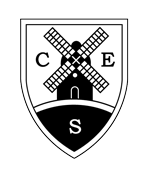Our School Day
| EYFS & KS1 | |
|---|---|
| 08:55 | School day starts |
| 08:55 – 09:05 | Register |
| 09:05 – 09:35 | EYFS/Y1 Phonics Y2 English Reading and basic skills |
| 09:35 – 10:35 | English |
| 10:35 – 10:50 | Break time |
| 10:50 – 12:20 | Maths |
| 12:20 – 13:10 | Lunchtime |
| 13:10 – 15:10 | Wider curriculum lessons |
| 15:10 – 15:30 | Collective worship |
| 15:35 | Home time – Collect children from the school playground |
| KS2 | |
|---|---|
| 08:55 | School day starts |
| 08:55 – 09:05 | Register |
| 09:05 – 10:15 | English |
| 10:15 – 10:30 | Break time |
| 10:30 – 12:00 | Maths |
| 12:00 – 12:50 | Lunchtime |
| 12:50 – 13:10 | Reading |
| 13:10 – 15:10 | Wider curriculum lessons |
| 15:10 – 15:30 | Collective worship |
| 15:35 | Home time – Collect children from the school playground |

A culture of reading inspires a lifelong love for books.

The school’s family ethos creates a calm and welcoming atmosphere.

Resilience is built through diverse opportunities and managed risks.

Pupils understand the conventions of different genres and demonstrate this in their own compositions.

From an early age there is a strong focus on developing curiosity, by asking questions and reflecting on responses.

Pupils rise to meet the ambitions of a broad and balanced curriculum.

When working together, pupils show good levels of cooperation and help one another willingly. In lessons, they respond well to tasks they have been given and enjoy the work they do.

Pupils describe their own spirituality as ‘being themselves, thinking beyond themselves, caring for others, the wider world and beyond’.

Religious education (RE) is well led and taught across school. Pupils have an informed understanding of a range of faiths.

High quality displays in all subjects, including RE, are a priority and enable pupils to see the progress they are making.

Character development is at the heart of every learning experience.

Strong relationships with families and the community enrich school life.

Pupils enjoy lessons because teaching is challenging them to learn more and achieve better.

Teachers choose interesting texts to capture pupils’ imagination and support their learning.

Purposeful and varied outdoor learning provides the opportunity for pupils to engage in the awe and wonder of the natural world.

A Christian school in a small community, making a big difference.

Inspired by the Christian vision, collective worship is highly valued and central to the daily lives of pupils. It encourages pupils to reflect on, and live out the school’s Christian values in their own lives.

Governors are very well informed and know their school well. They provide the right level of support and challenge.

The school’s work to promote pupils’ personal development and welfare is good.

In English, texts are carefully chosen to encourage reflection and understanding difference and diversity.

Teachers successfully plan learning activities that meet the needs and interests of the range of ages and abilities in their classes.

Younger pupils use punctuation and capital letters accurately, forming sentences with increasing complexity.

Pupils’ development as advocates for social justice is particularly strong and goes beyond regular fundraising.

Leaders are dedicated to make a difference to every pupil and staff member.

Driven by their distinctly Christian vision, this school has been on a rapid journey of improvement as a Church school over recent years.

The curriculum effectively provides time for reflection and spiritual growth.

Safeguarding is effective and children’s welfare requirements are met. Staff are well trained and vigilant in ensuring that all children are safe.

The school offers a range of opportunities for pupils to participate in a number of afterschool sports clubs and competitive events.

Pupils thrive in an inclusive and nurturing environment.

Pupils are taught how to keep themselves safe in a variety of situations, such as when using the internet.

Pupils are proud of their achievements and embrace learning with enthusiasm.

Pupils behave well and have positive attitudes to learning. They respect and listen to one another and work well together.

Collective worship is a central part of daily life, it is invitational and inclusive.

Across year groups, pupils who are currently in the school are making good progress in reading, writing and mathematics.

Aspirations are high and all, including the most able, are challenged. Pupils take pride in their work and delight in seeing their efforts displayed around school.

Leaders ensure that all curriculum decisions have their vision and associated values of respect, resilience and responsibility at the forefront.

The behaviour of pupils is good. Around the school, in the dining hall and on the playground, pupils are well behaved and courteous to each other and adults.

Parents are confident that their children are kept safe and are cared for well.

Challenged by their learning, pupils are keen to seek justice and fairness for those in society. They talk about ‘how they find a problem and try to sort it out’.

Teaching, learning and assessment are good across the school.

Pupils make good progress in mathematics. In most classes, teachers plan meaningful and wide-ranging opportunities to solve problems, investigate mathematical ideas and develop mathematical reasoning.

Pupils attend school regularly. They are very happy in school and feel safe.

Parents are positive about the school’s work and the education their children receive.

Respect, responsibility, and resilience weave through school life.

Leaders and staff are passionate in their drive to ensure every child at Skidby flourishes.

The teaching of writing is good. Teachers ensure that pupils learn to write in different styles and for different audiences.

Teaching assistants have a good understanding of their roles and provide effective support to the pupils they are working with.

Staff feel exceptionally supported and valued in their roles.

Pupils challenge injustice and engage in meaningful social action projects beyond fundraising. This has a very positive impact on both their own lives and those of others.

In phonics lessons, teachers take opportunities to explain that sounds can be made with different groups of letters. This helps pupils to read simple words.

Throughout the school, pupils are polite, friendly and welcoming. They show respect, both to adults and to each other.

Staff communicate with parents well. Parents are appreciative of the information they receive about how well their children are doing and what they are learning.

The school’s distinctive Christian vision has brought clear focus and direction to ensure rapid progress as a Church school.

The breakfast club provides a healthy meal each morning for any pupil who wishes to attend.



